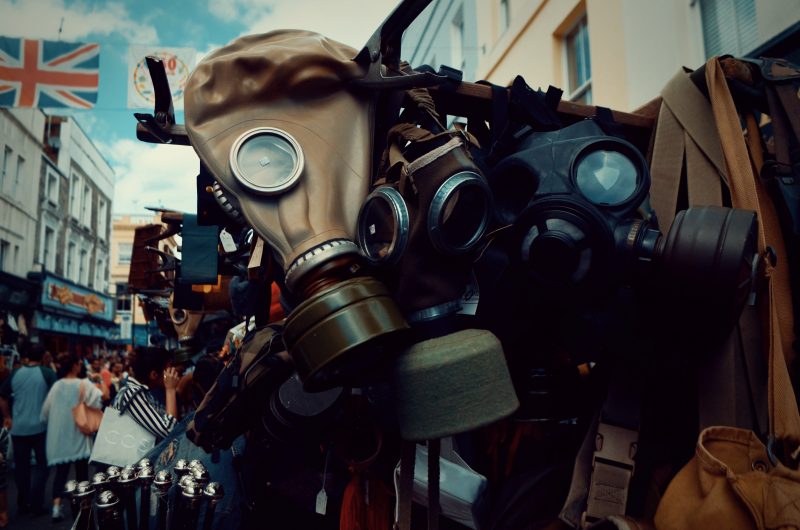The coronavirus will go down in history as the political, social and an economic problem which revealed the true nature of the relationship between various states and their citizens… it should be clear by now that this is far more than a simple epidemic or healthcare crisis.
Humanity, which entered the 21st century with the 9/11 attacks, is on the verge of a new phase as a result of the Corona epidemic, and it is obvious that things are going to get worse before they get better.
While the first stage of the epidemic revealed the desperation of Western-type “democracies” based on individualism, private ownership and liberalism, we have since seen the fallout in the form of global economic recession and the “temporarily” collapse of the world stock market.
THREE DIFFERENT APPROACHES TO FIGHTING THE EPIDEMIC
Three different approaches have emerged in the struggle of various states against the epidemic:
1. The Chinese method; China, a society constructed on socialist foundations, has implemented harsh quarantine measures in the areas where the epidemic is found without wasting any time and, despite the cost to the economy, put human life above economic interests.
The Chinese approach has included the construction of massive quarantine centers, curfews and mandatory health precautions, all of which had very positive results within a month. Today in Wuhan, the ground zero of the epidemic, people are taking their masks off and returning to their normal lives.
2. Appeasement; In Mediterranean countries like Italy, Spain and France, and other places around the world such as the US, Iran and Israel, measures such as quarantines were not implemented right away in order to keep the economy in motion. Quarantine measures in these countries were only taken after the outbreak began to grow out of control.
3. The Protestant Model; Germany and Britain have developed similar approaches to handling the epidemic… I will leave the question of whether or not this similarity stems from these countries sharing a common Lutheran heritage to our respected historians.

Pexels
While British Prime Minister Boris Johnson announced that they would fight the epidemic via the doctrine of “herd immunity,” his German counterpart Angela Merkel’s said that 60% to 70% of Germans might end up infected, emphasizing that “It is our duty to save lives, but also to ensure that the economy keeps going.” The measures she has taken (or lack thereof), indicates that she plans to follow the same path as the UK.
The herd immunity model contains traces of Social Darwinism: it is calculated that a common immunity will develop in the public as a result of the virus being spread widely, and therefore implies that serious measures do not need to be taken.
The critical element of the British and German approach is to make sure that the virus is transmitted slowly to avoid constrictions in the country’s healthcare infrastructure.
While the Financial Times describes herd immunity as a “gamble,” if the virus spreads to 80% of the UK which has a population of 66 million and the death rate is taken as 1%, it means that some 500,000 people will die.
It would not be a stretch to say that the “herd immunity” model which leaves old people and those who suffer from chronic diseases to the mercy of the epidemic contains traces of Nazi ideology.
THE MAIN CONTRADICTION: SOCIALISM OR BARBARISM
Although we discussed three approaches to the fight against the epidemic, there are essentially only two: the Socialist model that puts the people above all, and the response of Western “democracies”, where appeasement slowly turns toward Nazi-like solutions.
It is shocking and telling that Italy’s calls for help were answered by China and Cuba rather than other EU members.
With this epidemic, Western-type democracies have proven incapable of providing healthcare for their own citizens, let alone helping their neighbors.
The United States’s strict response to Iran’s calls to loosen sanctions to help cope with the epidemic is also telling. Meanwhile, China and Cuba are sending doctors and medical supplies. This should help us answer whether humanity’s best interests are with Washington or Beijing.
The struggle against the epidemic has gone beyond a choice in healthcare systems and become a choice between liberalism and collectivism.

Piqsels
AFTER THE CORONAVIRUS
While it is still too early to talk about the aftermath of the epidemic considering we are only now experiencing the first wave, we can still make the following conclusions:
1. Western “democracies” have failed the text presented by the epidemic. The appeasement approach which dominates the majority of the continent is a clear indication of this.
2. The Chinese model, based in collective and the statist struggle, has proven itself successful to the entire world. People trapped in their houses under quarantine in Italy are saluting Beijing’s assistance and chanting slogans in support of China from their balconies.
3. The United States is incapable of even producing a unique model in the fight against the epidemic leaving it afloat in internal struggles and indecision. Trump has indicated that the Chinese model is an option, a good indication that Washington is surrendering to China’s social, economic and political leadership.
4. Аs the economic crisis deepens and the epidemic threatens to trigger the rise of totalitarian trends in Europe, productive action taken by leftist/socialist movements could find fertile ground for moving toward the Chinese model. If the anti-Chinese hostility among the Western left persists, however, this will not occur, and the anti-EU nationalist movements supporting good relations with China will rise instead.
5. The economic collapse which we will feel even more severely after the epidemic will help social movements to develop in resistance, especially in relation to deepening global conflicts.
George Friedman, the founder of a think tank called Stratfor (known as the CIA’s shadow) had this to say about the epidemic:
“When the coronavirus first appeared, the natural public response was to demand that the government stop it. The next phase was to blame the government for failing to protect them. The third phase will be attacking the government for taking the steps it took to protect them.”
It would be naive to think that Friedman spoke these words in vain.
It is clear to see that imperialism will use the post-epidemic financial crisis and resulting global mistrust against the nation-state.
At this point, two opposing sides are sure to arise, one supporting the national/leftist/socialist movements against the weakened governments in Europe, the other aligning with the US regardless of what has happened, supporting these weakened Western states under any circumstance.
The Coronavirus has brought humanity to an economic, social and political turning point. At this juncture, Fredrich Engels’ classic dichotomy of “Socialism or barbarism” seems more relevant than ever.

















Leave a Reply